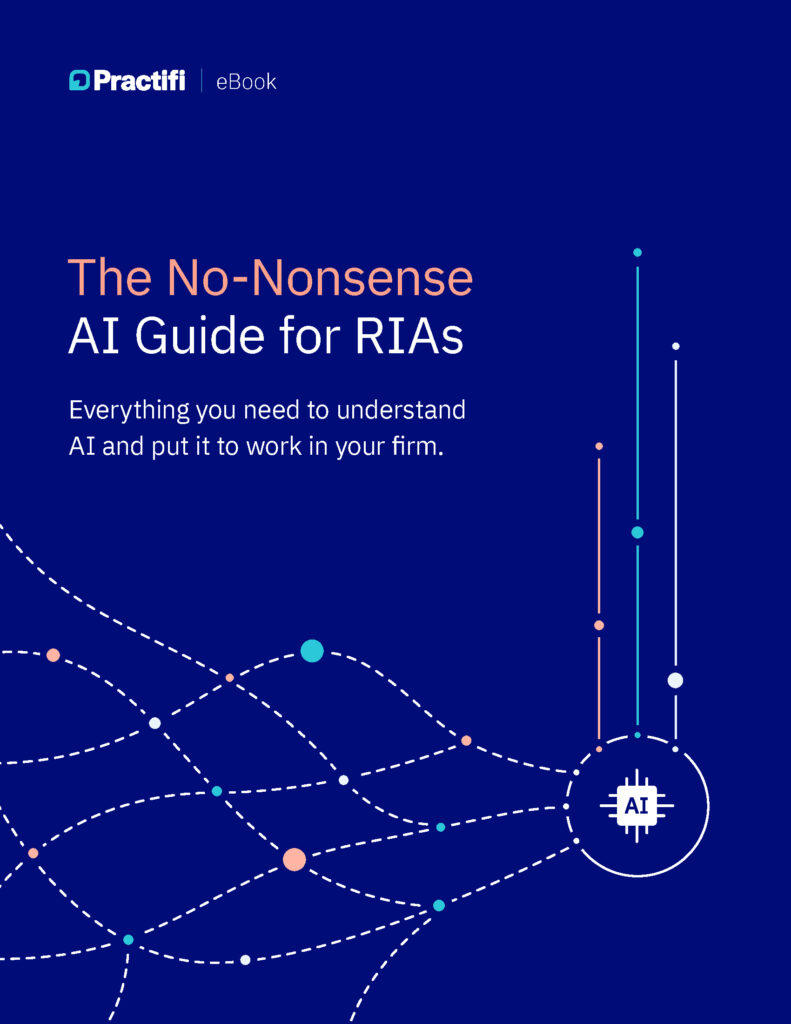
Out Of Office: Why It Matters More Than You Think
Out of Office. It’s one of the simplest status updates you can make, but for many financial advisors, setting up that automatic reply feels anything but easy. We hear the hesitation often:
“What if a client needs me?”
“What if the markets move while I’m away?”
“I can’t just… unplug.”
The questions are real. Financial advisors operate in a high-trust, high-stakes environment, where responsiveness feels like part of the job description. There’s a quiet expectation, often self-imposed, that being present equals being professional. Many advisors believe their value lies in always being available. That belief runs deep. But it’s worth challenging. Because when availability becomes the measure of worth, rest starts to feel like a risk — and no business thrives under that kind of pressure for long.
Even a short break can feel risky. Like something important might slip, or someone might lose confidence. But what’s truly at risk isn’t the time away — it’s what happens when that pressure becomes the norm. Performance drops. Energy fades. Decisions turn reactive. Growth slows.
No business should depend on one person being “on” at all times just to function. The best-run firms avoid that trap. They don’t just allow advisors time off — they plan for it. And that shift makes all the difference.
The Cost of Constant Availability
Always on. Always at risk.
For many advisors, nonstop availability has become the default setting. A client reaches out late in the evening? You respond. A market event unfolds over the weekend? You check in. The idea of stepping away fully starts to feel out of reach.
But constant availability comes at a cost, even if that cost isn’t immediately visible. Focus starts to scatter. Recovery time disappears. Burnout creeps in slowly, then all at once. When every day demands your full emotional and mental presence, there’s little left for long-term planning, strategic thinking or sustainable growth.
There’s also a structural risk. When clients only feel confident if they have direct access to one person, the business becomes fragile. Vacations turn into vulnerabilities. Sick days become stress tests.
Responsiveness will always matter in this profession, but it can’t come at the expense of resilience. And resilience doesn’t come from always being available. It comes from building systems that support both service and sustainability.
What Break-Ready Firms Actually Do
Stepping away shouldn’t require scrambling. The firms that do this well don’t just allow for time off, they operationalize it. Their teams know how to keep things moving because the right systems are already in place. Here’s what that looks like in practice:
- Designated points of contact: Every advisor should have a clear backup. Clients know who to reach and what to expect when their primary contact is away.
- Pre-scheduled client check-ins: Regular, proactive communication reduces the need for last-minute outreach. When clients know the next touchpoint is already on the calendar, it lowers urgency.
- Clear internal workflows: Tasks, follow-ups, and deadlines live in systems, not in someone’s head. That way, any team member can step in without missing a beat.
- Smart use of technology: CRMs, automated task triggers, shared notes — these tools aren’t just about efficiency. They give the whole team visibility into client needs, regardless of who’s in the office.
- A culture that respects time off: Leaders set the tone. When boundaries are supported at the top, they’re honored throughout the firm. And when people return, they come back recharged, not buried.
A New Standard of Professionalism
When stepping away feels risky, the problem usually isn’t dedication. More often, the business just isn’t built to support it.
Making space for advisor downtime supports, not sacrifices, client service. When the right systems are in place, taking time off becomes a safeguard for momentum, not a disruption.
Advisors who step away can return with sharper thinking, deeper focus and stronger client conversations. That kind of clarity elevates how they lead conversations, make decisions and contribute to the firm. This level of performance doesn’t happen by chance. It starts with boundaries that are built and supported at the firm level. When leadership sets the tone, and the team works together to uphold it, time away becomes part of how the business runs — not an exception to the rule.
This kind of advisor support reflects both care and operational intelligence. A firm that protects its people builds long-term stability, trust and resilience for clients, teams and the business itself.
That’s the kind of business worth building.












